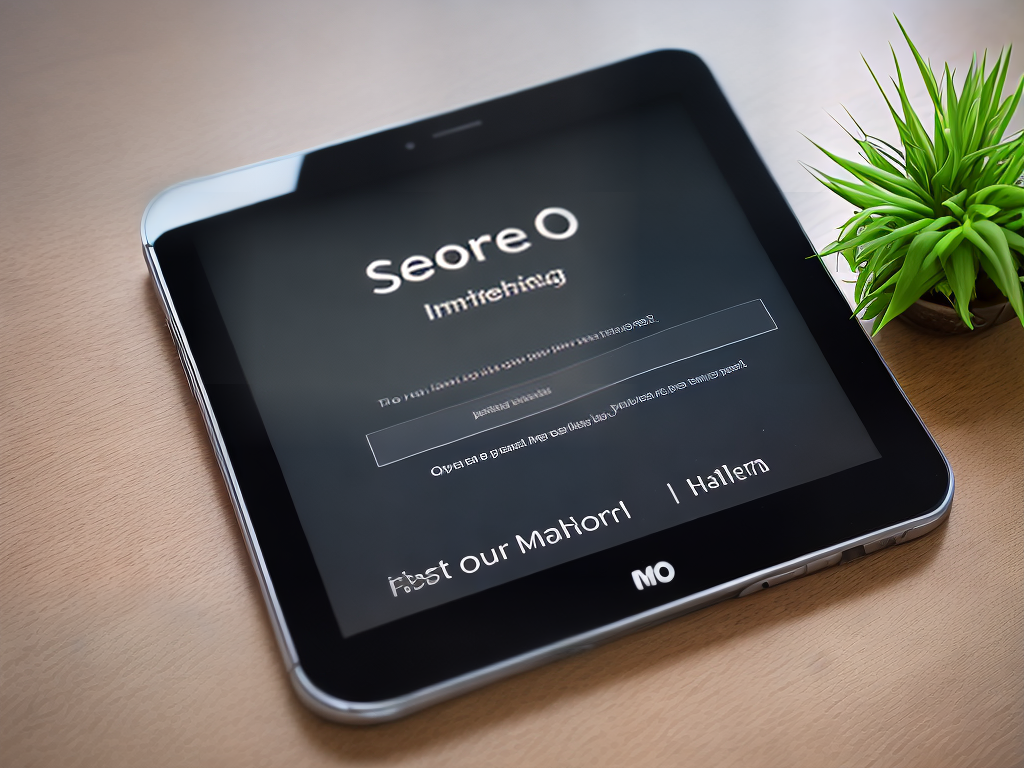Hey there – I’m here to talk about ‘The Impact of Social Media on SEO’. It’s an interesting topic, and one that affects us all in some way or another.
If you’ve ever used social media, then you know how powerful it can be when it comes to getting your message out there – and the same goes for SEO.
In this article, we’ll look at how exactly social media influences search engine optimization (SEO) and what strategies you can use to maximize its impact on your website rankings.
Let’s dive right in!
What Is Seo?
Search engine optimization, commonly known as SEO, is an incredible tool for businesses to increase their visibility online. It’s a complex process that can be seen from a variety of angles – both technical and creative – but it essentially boils down to one fundamental goal: increasing the amount of organic traffic your website receives.
The beauty of SEO lies in its ability to draw customers through search engines like Google or Bing by making sure that your website appears at the top when people are looking for something related to what you offer. Consequently, it has become imperative for businesses today to invest in SEO if they want to stay competitive in the digital world.
To paint a vivid example of why SEO is so important, imagine this situation: You’ve got two companies who offer similar services side-by-side on the same street; however, only one company invests in SEO practices while the other does not. Over time, more and more people discover the company with optimized content via searches on Google and Bing — simply because it appears higher up on results pages than its competitor — leaving little incentive for potential customers to ever visit them down the street! In this way, investing resources into search engine optimization becomes key to success in driving business growth.
Nowhere is this truer than when we consider social media’s role in modern day SEO strategies. Social networks such as Twitter, Facebook, Instagram, LinkedIn and Pinterest have become integral components of effective content marketing plans all across industries due to their immense reach and influence over users’ lives. Through these outlets brands can promote products directly, generate engagement between followers and build relationships with existing fans – all which will inevitably help boost website rankings since sites indexed by search engines use signals from social media activity as metrics towards relevance scores.
The implications here are clear– utilizing social media channels strategically within an overall SEO plan is necessary for any successful campaign today. Without incorporating these platforms into efforts aimed at improving visibility online, businesses run the risk of being left behind by those savvy enough not just to recognize opportunities presented by new technologies but also act upon them swiftly and correctly. Forging strong connections between social media initiatives and website performance remains paramount if companies wish remain relevant amidst fierce competition from rivals doing exactly that.
What Is Social Media?
Social media is everywhere these days. It’s hard to go a day without seeing an ad, meme or tweet about it. But what exactly is social media?
At its core, social media is all about connecting people from around the world. Social networks like Facebook, Instagram and Twitter allow users to share information with friends, family and even complete strangers in seconds. People can post everything from photos of their latest vacation to news stories they think are important. They can also use these platforms to interact with businesses and brands that interest them.
With so much content being shared on these sites every day, it should come as no surprise that search engines have taken notice. The way we use social media now has had a huge impact on SEO (Search Engine Optimization). Search engines are constantly updating their algorithms based on how people interact with certain websites through social media posts and shares.
This means that companies who want high rankings must take advantage of this new landscape by posting regularly across multiple channels and engaging with followers when possible. All this goes to show just how powerful social media has become for businesses looking to reach new audiences online. Understanding how SEO works within the context of social media can help you get ahead of your competition and maximize your visibility online – not just today but well into the future too!
With such potential power at our fingertips, let’s explore further how does social media impacts SEO?
How Does Social Media Impact Seo?
It has long been theorized that social media can impact SEO, but is there any truth to this? It turns out that the answer is a resounding yes. Social media does have an effect on search engine optimization (SEO) and it’s one of the most important aspects of online marketing today.
From increasing brand awareness to driving organic traffic to your website, there are numerous ways in which having a strong presence on social platforms can help boost your rankings in SERPs (search engine result pages).
For instance, when you post content regularly on Facebook or Twitter, you create more opportunities for users to share and link back to your site. This helps build “social signals” – signals such as likes, shares, comments, etc., which all contribute to higher rankings in SERPs. Additionally, using relevant keywords throughout your posts will also enable Google’s algorithms to better understand what people are searching for when they find your page or article.
But SEO isn’t just about optimizing for Google anymore; it’s about optimizing for humans too. As mentioned before, having a presence on social media gives you the ability to engage with potential customers directly by responding quickly and efficiently to their inquiries and concerns. Doing so shows them that you care about their experience with your product/service and builds trust between them and your brand.
Showing off customer testimonials or reviews via these channels can also be beneficial; not only do they make prospective customers feel more comfortable working with you but they also act as powerful endorsements from existing customers which further adds credibility to your business.
The importance of social media cannot be understated when it comes down to SEO success – if done right, it can give brands an edge over their competitors by improving visibility across both search engines and other platforms alike. Allowing users access into conversations related to topics surrounding their industry allows companies the chance to target the right audience while establishing themselves as experts in the field at hand.
Social Signals And Rankings
Social media has become an integral part of SEO and how websites are ranked. It’s not just about content creation anymore, but also building relationships through social networks like Facebook, Twitter, Instagram, LinkedIn, etc.
Social signals from these platforms let search engines know if your website is popular or not. The more activity that takes place on any given page the higher it will rank in a search engine’s results. This includes things like shares, likes, comments and other forms of engagement as well as visits to the actual website itself.
All of this data helps Google determine which pages should be displayed first when someone searches for something online. Having good social signals can actually improve a website’s ranking by sending positive messages to search engines that show the site is being interacted with and actively engaged with.
Each time a post receives lots of shares or likes it sends a signal to Google that people find the content valuable and worthy of promotion within their network – meaning they have more reason to believe it deserves to appear at the top of SERPs (search engine result pages).
By utilizing social media sites properly you can increase visibility for your business and optimize its reach across multiple platforms. This makes it easier for customers to connect with you while providing invaluable feedback – helping you understand what works best for them so you can tailor your services accordingly.
With all this in mind, there’s no doubt that having an effective presence on social networking sites can do wonders for one’s SEO efforts! Ready for quality content? Let’s dive in…
The Effects Of Quality Content On Seo
As we take a look at the impact of social media on SEO, it’s like stepping through an open doorway into uncharted territory. The possibilities are endless and yet daunting; what will you find out there? What kind of opportunities await?
To make sense of it all, let’s start by looking at how quality content impacts SEO:
-
Quality content creates trust with customers who feel more inclined to share your business on their own social networks
-
Quality content builds relationships with other websites linking back to yours as an authoritative source
-
Quality content drives organic search traffic which leads to higher conversions and better ROI
-
Quality content establishes credibility in Google algorithms resulting in improved rankings over time
At first glance, creating quality content might seem intimidating but remember that power is within reach if you put yourself in the shoes of those reading it. Appeal to their wants, needs, and values while keeping them engaged with interesting stories or data-driven insights.
In this way, high-quality material can become both the foundation for strong connections between businesses and consumers as well as a cornerstone for successful SEO campaigns. With so much potential for success, why not use every measure possible – including leveraging the power of social media – to ensure maximum return from your efforts?
Utilizing Social Media For Link Building
I’m sure you’ve heard the phrase ‘Content is king’ in relation to SEO. It’s true, but content can’t be just any type of content; it needs to be engaging and relevant.
Link building has become an integral part of modern SEO strategies, and social media provides a great platform for doing so. When done correctly, link building through social media helps increase your website’s visibility and authority with search engines.
You can use popular platforms like Facebook, Twitter, LinkedIn, Instagram, YouTube, or Pinterest as tools to build high-quality links back to your site. Not only will this boost brand awareness and drive traffic to your page, but it also serves as a signal of trustworthiness that Google loves.
However, don’t get carried away by simply sharing links without context – remember that good content matters! Try creating interesting posts that encourage others to share them on their channels too.
Share informative articles from other websites related to yours (with proper credit) and include hashtags for added reachability. High quality visuals are especially important when using sites such as Instagram or Pinterest – add eye-catching images along with catchy captions will make people more likely to click through the link.
Social media should not be overlooked when attempting link building efforts; leveraging its power can help increase your website’s online presence significantly! Now we need to turn our focus towards crafting engaging content for your audience…
Crafting Engaging Content For Your Audience
Social media has become an integral part of SEO. It can be a powerful tool for businesses to reach their target audience and build relationships with customers.
Here are some tips on crafting content that will engage your audience:
-
Provide value – Content should provide something valuable to the reader, such as insights or advice. Make sure it’s relevant to them and provides a unique perspective.
-
Be authentic – People appreciate authenticity in their social interactions, so make sure you show your true personality through your content instead of just trying to sell something.
-
Keep it short – Social media users often have short attention spans, so keep your content concise and focused while still conveying the message clearly.
By following these tips and creating engaging content, you’ll be able to capture the attention of your target audience and increase visibility for your brand. From there, you can use hashtags to further boost engagement and gain greater visibility in search engine results pages (SERPs).
Using Hashtags For Greater Visibility
It’s no secret that social media has become an incredibly powerful tool for businesses to increase visibility and engagement. But how can we use it to specifically boost our SEO?
Hashtags are a great way of making sure your content is seen by the right people, so let’s talk about how you can leverage them to get ahead in search engines.
While hashtags can be used for fun, they serve a much greater purpose when used strategically on social media platforms such as Twitter or Instagram. By creating short phrases with hashtags (for example: #socialmediamarketingtips), you make it easier for users searching those specific topics to find your posts.
This increases the potential reach of each post exponentially! Plus, if Google notices these keywords associated with your content, your website could gain better ranking results due to increased relevance and authority.
If done correctly, adding relevant hashtags to your own posts won’t just help attract new visitors – it’ll also help build relationships with other influencers who already have dedicated followers.
Connecting with influencers helps show Google that your brand is well connected within its industry, which will further improve rankings over time.
Hashtags don’t just give you more exposure either; they’re also a great way of tracking what kind of content resonates most with your audience. You can track hashtag performance using analytics tools like Sprout Social or Hootsuite and see exactly which type of content gets the best responses from users – allowing you to adjust future strategy accordingly for even better results!
With this knowledge in hand, leveraging video content should become easy and effective work towards boosting engagement quickly.
Leveraging Video Content To Increase Engagement
Social media has become an integral part of SEO strategy, and leveraging video content brings multiple advantages. It can help amplify your message, increase engagement with potential clients, and attract more prospects to your website.
Producing high-quality videos for social media requires some planning, but the rewards are worth it:
-
Reach a wider audience: Videos spread quickly on social networks, increasing visibility and helping you reach people who may not be exposed to other types of content.
-
Connect emotionally with viewers: Video is a powerful tool for connecting with audiences in ways that text cannot match; it helps capture their attention and cultivates emotions that drive action.
-
Enhance user experience: Watching videos provides users with valuable information without having to read long texts or click through multiple pages. This creates a better user experience overall which leads to increased conversions.
These compelling benefits mean that incorporating video into your social media strategy could give you an edge over competitors, as well as creating opportunities to build relationships with customers and engage new audiences.
With careful planning and creative execution, you can create impactful videos that will keep them coming back for more – all while optimizing your search engine rankings!
From here we move onto optimizing your social media profiles – a key step if you want to leverage effective video marketing campaigns and gain maximum exposure for your brand.
Optimizing Your Social Media Profiles
Social media is an essential part of SEO success. Optimizing your social profiles will go a long way in improving the visibility and reach of your website.
Here are some tips on how to get started:
-
First, make sure that all your accounts have up-to-date information about you or your business; this includes contact details, opening times, address and any other relevant information. Having complete profiles also shows potential customers that your organization is professional and credible.
-
Another great way to optimize your social media presence is by using keywords related to what you do in posts, descriptions, hashtags and profile bios. Keywords help search engines identify which pages should show up for certain searches, so including them strategically can be beneficial for SEO purposes.
-
Finally, it’s important to stay active on social media and post regularly – but not too often! Keep followers engaged with interesting content such as blog posts or videos that link back to your website. This helps encourage people to visit your site while also boosting its authority in the eyes of search engine algorithms.
Keeping track of performance metrics like impressions and interactions will give you an idea of how effective these efforts are being. With these tips in mind, let’s move onto monitoring your social media performance.
Monitoring Your Social Media Performance
Now that you have your optimized social media profiles, it’s time to start monitoring their performance. Knowing how many followers and likes you get, as well as what kind of engagement your posts are getting, is key for understanding whether or not you should adjust any part of your strategy.
Keeping an eye on the analytics associated with each platform will give you a deeper understanding about which content resonates best with your audience.
The first step in tracking performance is setting up goals and making sure they align with your overall objectives. This could be anything from increasing brand awareness to improving website traffic. Once these goals are established, develop a plan to track progress towards them by analyzing metrics like clicks, impressions, shares and mentions across all relevant platforms. Doing this regularly can help guide decision-making when creating new content or adjusting existing strategies.
It’s also important to look out for potential red flags so you can respond quickly if something isn’t working properly. Monitor things like negative comments or reviews, changes in follower counts or post engagements to identify areas where improvement is needed.
Additionally, take note of any trends that arise both within and outside of your industry – this could provide insight into what type of content resonates most with audiences today.
By keeping tabs on social media performance at regular intervals, businesses can stay informed about how their campaigns are doing and make adjustments accordingly to ensure success! With the data collected from various sources now available for analysis, we’re better equipped than ever before to understand our customers’ needs and create engaging stories that drive results.
Now let’s explore the benefits of paid advertising – an effective way to reach larger audiences online!
The Benefits Of Paid Advertising
Social media and SEO are two powerful tools that can be used to drive traffic, engagement, and visibility for your business. Paid advertising is one of the most effective ways to take advantage of these platforms and get ahead in the digital world.
With paid ads, you have much more control over how your message is delivered to potential customers, allowing you to target them with precise accuracy. You also don’t have to worry about getting lost among all the organic content online.
Paid ad campaigns allow you to reach a larger audience than ever before at an incredibly fast rate. Instead of waiting weeks or months for organic search engine optimization tactics to pay off, you can use paid ads to quickly boost website visits, click-throughs, leads, and sales. And with so many different types of social media networks available today – from Facebook Ads and Google Adwords to Twitter Promoted Posts – it’s easier than ever before to find your ideal audience.
The cost associated with running a successful paid campaign depends largely on what goals you want to achieve with it. However, when done correctly, even businesses on tight budgets can still benefit greatly from this type of marketing tactic by targeting only those most likely interested in their products or services.
Additionally, if budget allows you could always opt for longer-term strategies such as retargeting campaigns which offer higher long-term ROI’s compared to other methods like PPC (Pay Per Click).
With so many advantages offered by paid advertising campaigns, it’s clear why they should be part of any comprehensive social media strategy aiming towards success. The key here is having a well-defined goal in mind while taking full advantage of the available resources; then measuring performance regularly through analytics data provided by the respective platform(s).
Moving forward into integrating social media and SEO for maximum impact will ensure that brands stay competitive online now more than ever!
Integrating Social Media And Seo For Maximum Impact
Having discussed the benefits of paid advertising, it’s time to look at how integrating social media and SEO can maximize your impact.
Social media plays a huge role in our lives today, with over 3 billion people using various platforms online. It’s important for businesses to understand that making an effort on social media will help them be seen by potential customers who are actively looking for products or services like theirs.
Here are some ways you can make use of both SEO and social media:
-
Utilize relevant hashtags: Researching popular hashtags related to your business is key when it comes to increasing visibility across multiple channels. You should also create unique branded hashtags so that users can find content specific to your business more easily.
-
Post regularly: If you want to keep up momentum on search engine result pages (SERPs) as well as stay active on social media, then posting regularly is essential. This helps maintain relevance and encourages new followers while keeping existing ones engaged.
-
Link back to website: Including links back to your website from all your posts and shares increases traffic as well as boosts credibility since Google considers this a strong signal of trustworthiness. Also, don’t forget to include keywords in the link text which would further increase visibility in SERPs.
The combination of SEO and social media has become increasingly effective for businesses wanting to drive engagement and reach their desired audiences. By taking advantage of the opportunities these two strategies present together, businesses have greater chances of achieving success online than ever before!
Conclusion
In conclusion, SEO and social media are becoming more intertwined as the digital marketing landscape evolves.
When used together, these powerful tools can maximize your online visibility and help you reach a much larger audience than ever before.
By creating quality content, optimizing your profiles, monitoring performance, and even leveraging paid advertising when necessary, you can ensure that both SEO and social media will combine to create an effective strategy for success.



























